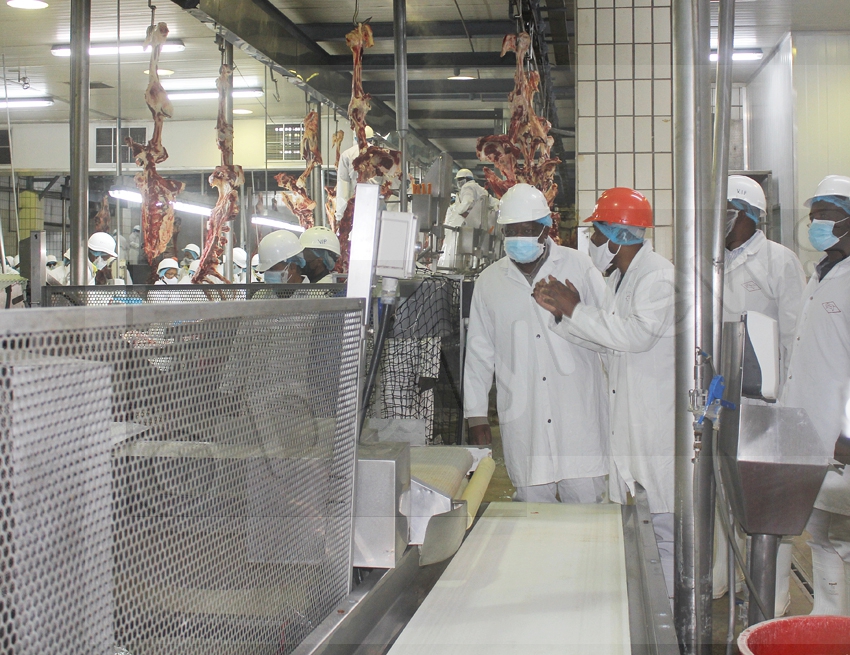Dikoloti warns against complacency
28 Mar 2022
The decline in new COVID-19 infections and the easing of restrictions in Botswana should not be interpreted to mean that the pandemic is over.
Updating Parliament on government’s response to the COVID-19 pandemic on Friday, Minister of Health and Wellness, Dr Edwin Dikoloti said though tremendous progress was made in the fight against the pandemic which resulted in easing of the restrictions, the society should remain vigilant since COVID-19 was still a threat to lives.
“The pandemic remains an existential threat to our lives and livelihoods. We need to continue with the two tried and tested approaches to fighting this pandemic as advised by health care workers,” he said.
The two approaches, he added included the pharmaceutical approach represented by COVID-19 vaccines and the non-pharmaceutical approach by health protocols.
The minister further urged those eligible for COVID-19 boosters to take the vaccines, adding the emergence of new variants posed a threat to the country and humanity in general.
He said a recent surge of new infections in Asia should make people vigilant of the possibility of a fifth wave of COVID-19 infections.
“We should follow health protocols and take COVID-19 vaccines as advised by healthcare workers. It is only through these actions and efforts that we can eventually defeat this deadly disease,” he said.
Dr Dikoloti promised that the ministry would continue keeping a close eye on the pandemic, and thanked the nation for making sacrifices which enabled government to succeed in containing the pandemic.
He said Botswana was among the most vaccinated countries in the world, with more than 60 per cent of the entire population having received at least the first dose of COVID-19 vaccination.
He said Botswana was also one of the four countries in Africa that met the World Health Organisation (WHO) target of reaching 40 per cent vaccination threshold by December 2021, and was also on course to reach the new 70 per cent vaccination target set by the WHO for countries to have reached by mid-2022.
“I cannot thank my ministry’s staff, together with our partners and other health care workers across the length and breadth of this country enough, for their tireless efforts in ensuring that many lives are saved,” he said.
Dr Dikoloti said the ministry introduced some measures recently aimed at safeguarding the gains made against COVID-19 and gradually easing the restrictions and increasing economic activities.
He said the measure included proof of one being fully vaccinated as main requirement for entry into Botswana.
He said those partially vaccinated or not vaccinated were required to produce negative PCR COVID-19 test results and undergo testing at ports of entry.
“This arrangements helps to avert the importation of new cases and new COVID-19 variants into the country. It must be noted that though PCR testing is helpful in filtering those with the virus from those without, it is not 100 per cent perfect since an individual can test today and be infected with COVID-19 after submitting the sample, but receive a negative PCR result the following day when they collect their result,” he said.
He said such individuals might bring the virus and other variants if allowed entry to Botswana. He added that allowing unvaccinated people into the country might also lead to increase in the rate of infections and deaths.
He said the isolation requirements were also eased, with only those who showed moderate to severe symptoms of COVID-19 regardless of their vaccination status, now required to isolate for 10 days. ends
Source : BOPA
Author : Jeremiah Sejabosigo
Location : GABORONE
Event : Parliament
Date : 28 Mar 2022



